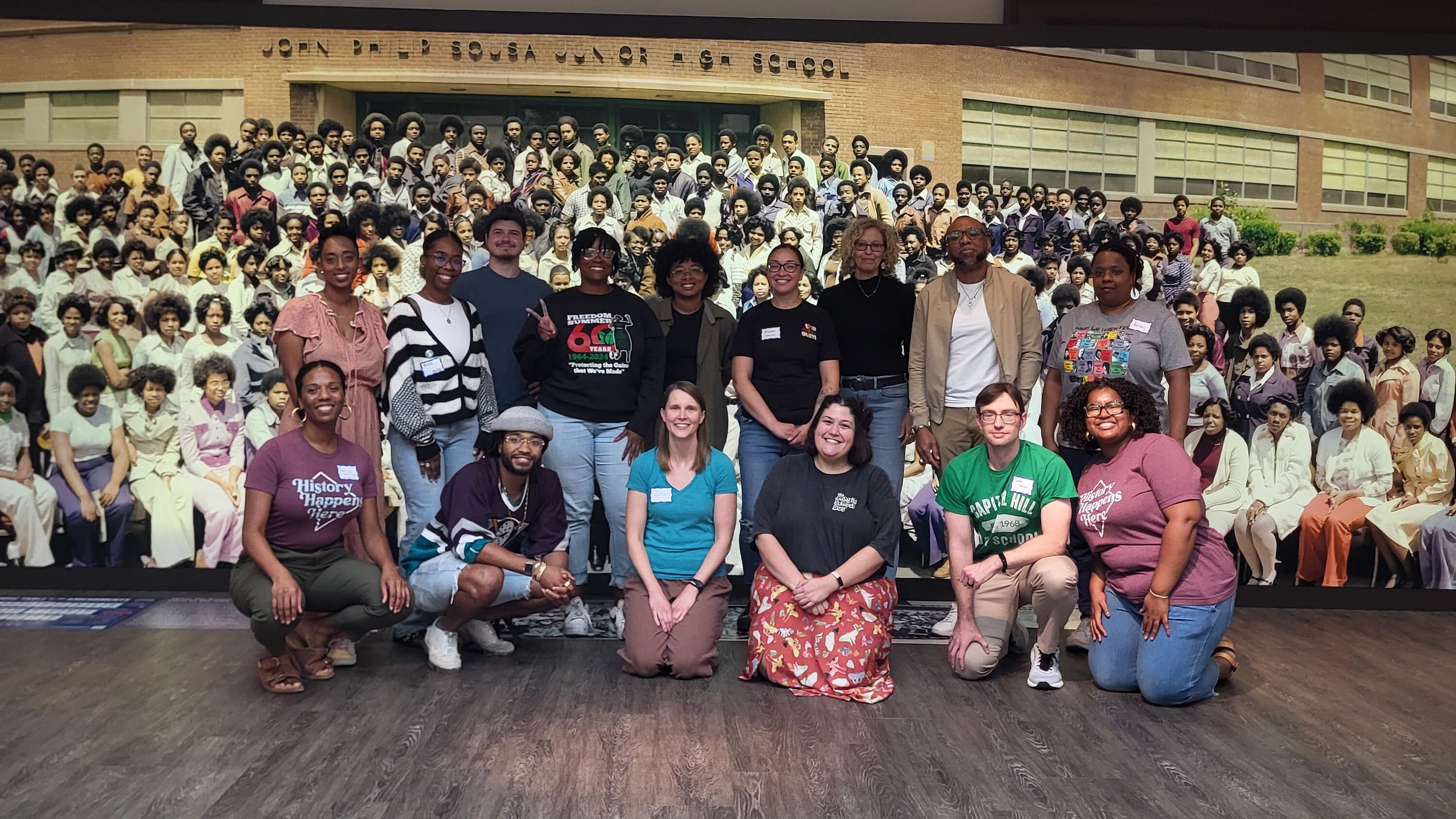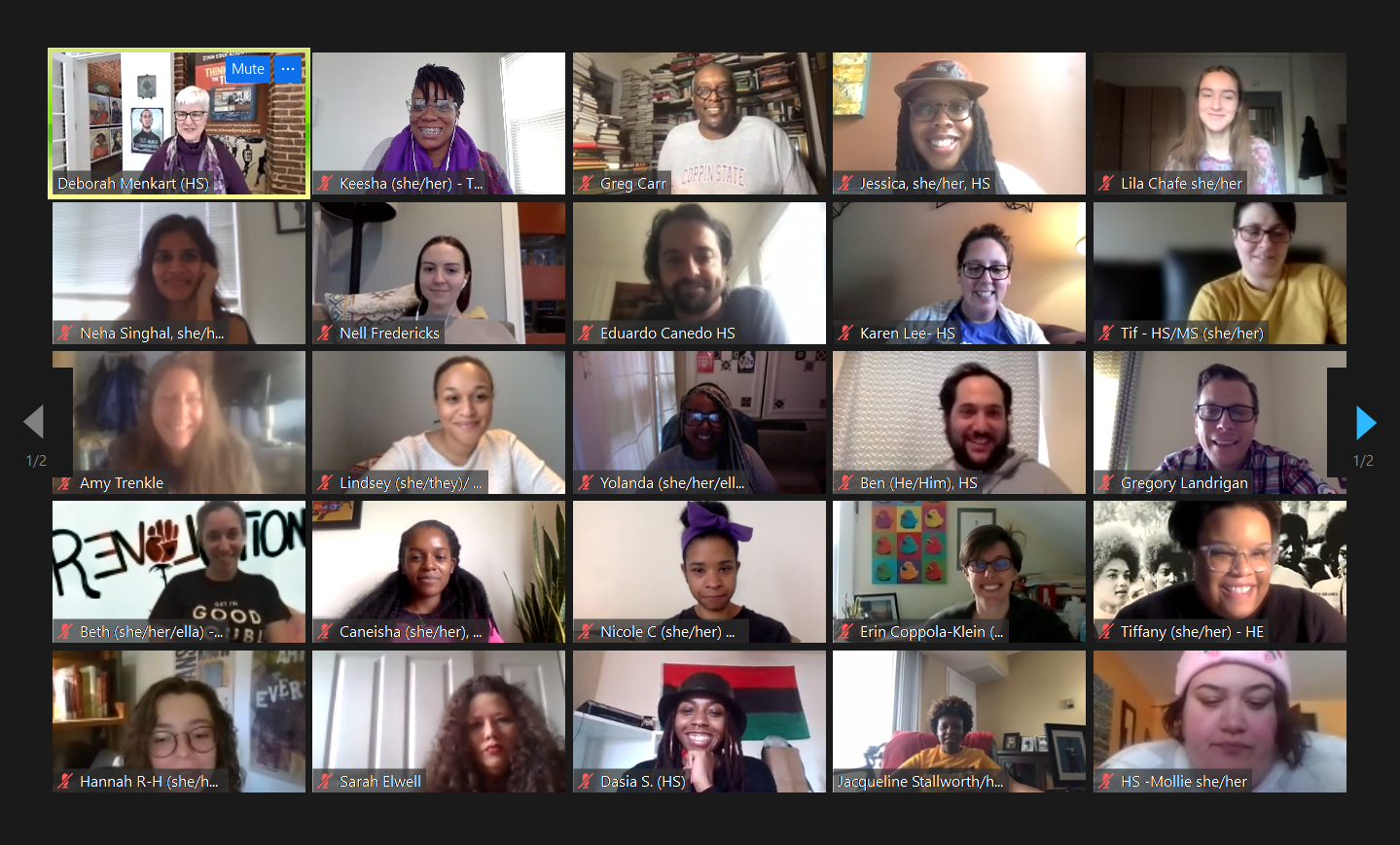People's History Curriculum Group
The DC Area Educators for Social Justice Middle and High School People’s History Curriculum Working Group coordinates D.C. area middle and high school teachers who are committed to teaching with a people's history lens.
In November and December of 2020, the group collectively wrote the following statement of purpose:
Create places of teaching and dialogue for the purpose of exposing the roots of oppression in order to transcend and abolish them
Challenge the stories and celebrations that are told in society to create a more just and humanizing education system, with liberatory curriculum design, for our community
Empower students to realize and utilize the power they already possess
Engage in revolutionary, abolitionist praxis in schools
Foster brave and restorative spaces for collective organization and communal care
As of the 2025 - 2026 school year, all DCAESJ working groups meet quarterly, collectively engaging in themes of social justice education (visiting local history sites, developing lessons, and more). Breakouts by grade level allow deeper discussion and praxis alignment among peers.
Fill out the application if you are interested in joining the group.
Background and Sessions
For the founding year and a half, DCPS middle school teacher Caneisha Mills was the teacher co-coordinator. In addition, Mills had a lesson published at the Zinn Education Project website and in Rethinking Schools. The lesson, which she had shared with the group for feedback as she was writing it, is Who’s to Blame? A People’s Tribunal on the Coronavirus Pandemic.
The first meeting of the people’s history curriculum working group was held on October 5, 2019, with a presentation by high school teacher and Rethinking Schools editor Ursula Wolfe-Rocca. Wolfe-Rocca led the group in a 45-minute climate justice lesson and described five approaches to writing curriculum. The group then met in sub-groups: one on teaching about climate justice and the other on teaching about challenging myths about U.S. Presidents. Each participant received a copy of the Rethinking Schools book, A People’s Curriculum for the Earth.
In 2021 the group was selected as one of the Zinn Education Project Teaching for Black Lives Study Groups. As a result, participants (after two meetings) receive a copy of the book Teaching for Black Lives, a subscription to the Rethinking Schools magazine, and invitations to special events for study group members from across the United States.
A number of subsequent sessions are described below, starting with the most recent session and working back.






























